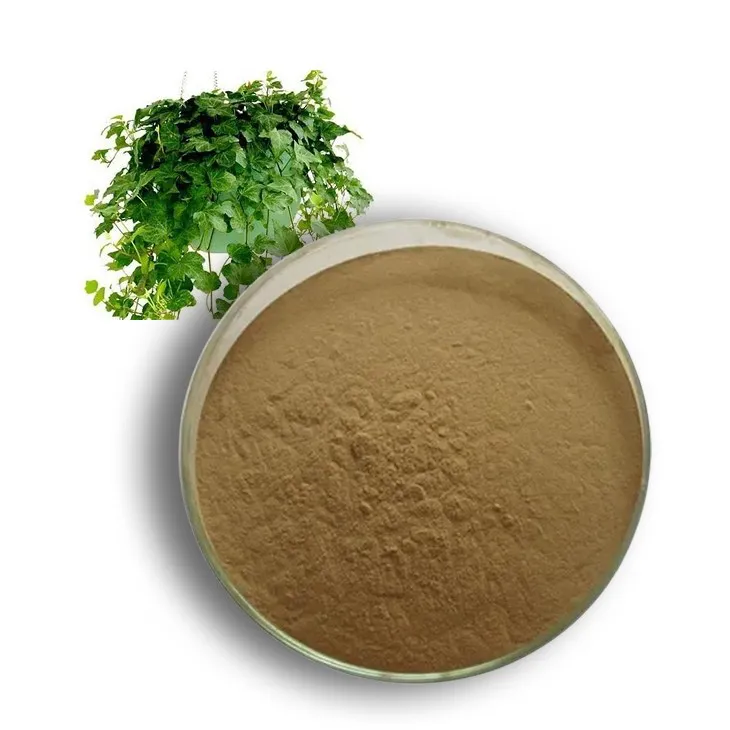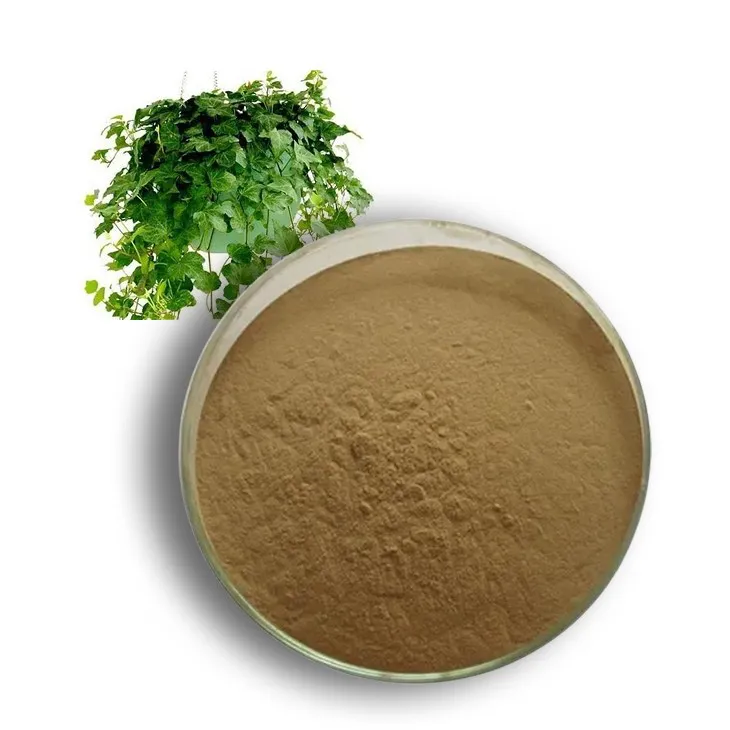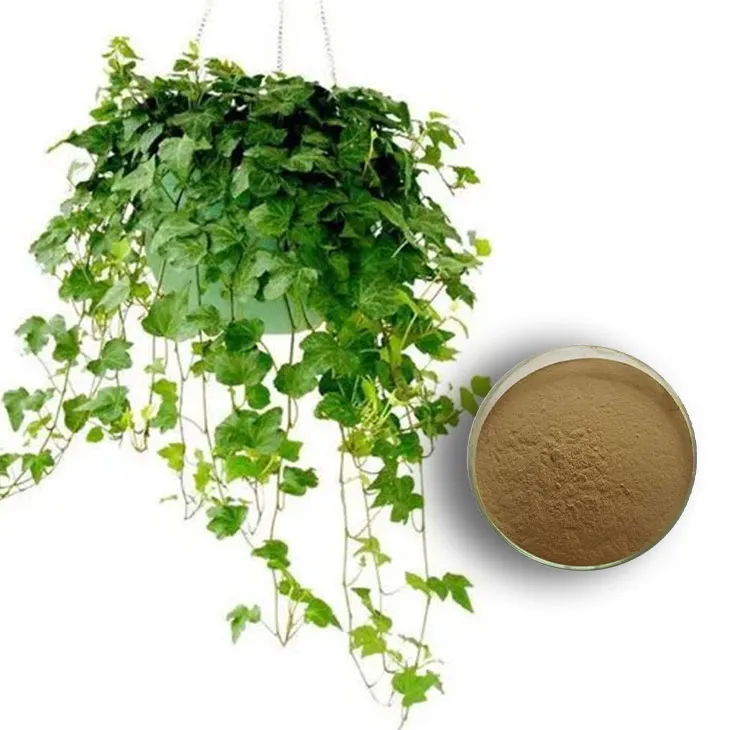- 0086-571-85302990
- sales@greenskybio.com
4 Things Consumers and Manufacturers Should Know about Ivy Extract.
2024-12-16

1. What is Ivy Extract?
Ivy Extract is a substance derived from the common ivy plant, Hedera helix. It has been used for various purposes throughout history. The extract contains a variety of compounds, including saponins, flavonoids, and phenolic acids. These components contribute to its potential properties and applications.
In traditional medicine, Ivy Extract has been used for respiratory conditions. It was believed to have expectorant and bronchodilator effects, helping to ease coughs and open up the airways. However, it's important to note that traditional uses do not always translate directly into modern medical applications.

2. Applications of Ivy Extract
2.1. Cosmetic Applications
Ivy extract has found its way into the cosmetic industry. It is often used in skincare products for its potential antioxidant properties. Antioxidants are important for protecting the skin from damage caused by free radicals, which can lead to premature aging, wrinkles, and other skin problems.
Some creams and lotions containing ivy extract claim to improve skin elasticity and firmness. It may also have a soothing effect on the skin, making it suitable for products aimed at sensitive skin types. For example, some facial masks and moisturizers use ivy extract as an ingredient to provide these benefits.
2.2. Medicinal Applications
In the field of medicine, there is ongoing research into the potential uses of ivy extract. As mentioned earlier, its traditional use in respiratory health has led to further investigations. Some studies suggest that certain components in ivy extract may have anti - inflammatory effects in the airways. This could potentially be beneficial for people with asthma or other chronic obstructive pulmonary diseases (COPD).
However, it's crucial to understand that more research is needed to fully establish its efficacy and safety for these medical applications. Currently, it is not a mainstream treatment option but rather an area of interest for researchers.

3. Safety Considerations
3.1. Allergic Reactions
Ivy extract can cause allergic reactions in some individuals. People with known allergies to plants in the Araliaceae family, which includes ivy, are at higher risk. Symptoms of an allergic reaction may include skin rashes, itching, swelling, and in severe cases, difficulty breathing. Consumers should always perform a patch test before using a product containing ivy extract on a large area of skin.
3.2. Toxicity
While ivy extract is typically processed and used in small, controlled amounts in products, the ivy plant itself can be toxic if ingested in large quantities. This is due to the presence of certain compounds that can be harmful to the body. Manufacturers need to ensure that the extraction process is carefully controlled to remove any potentially toxic components. Consumers should also be aware that they should not ingest products containing ivy extract unless specifically directed by a healthcare professional.

4. Regulatory Compliance
4.1. Cosmetic Regulations
In the cosmetic industry, there are strict regulations regarding the use of ingredients like ivy extract. These regulations are in place to ensure the safety of consumers. Manufacturers must comply with guidelines on ingredient labeling, purity, and quality control. For example, they need to accurately list all ingredients on the product label, including ivy extract, and provide any necessary warnings about potential allergens.
4.2. Medicinal Regulations
When it comes to medicinal applications, the regulatory requirements are even more stringent. If ivy extract is being studied or developed for use as a medicine, it must go through extensive pre - clinical and clinical trials. These trials are designed to assess its safety, efficacy, and dosage requirements. Only after successful completion of these trials can it be considered for approval as a medicinal product.
In addition, regulatory bodies around the world, such as the Food and Drug Administration (FDA) in the United States and the European Medicines Agency (EMA) in Europe, have different requirements for the approval of products containing ivy extract. Manufacturers need to be well - aware of these regulations and ensure compliance to avoid legal issues.
4.3. Import and Export Regulations
There are also regulations governing the import and export of products containing ivy extract. These regulations may vary from country to country. For example, some countries may have restrictions on the import of products containing certain plant extracts due to concerns about invasive species or potential agricultural threats. Manufacturers and exporters need to be familiar with these regulations to ensure smooth international trade operations.
FAQ:
Question 1: What are the main applications of Ivy Extract?
Ivy Extract has several applications. In the cosmetic industry, it can be used in skincare products for its potential antioxidant properties. In traditional medicine, it has been used for respiratory health, as it may help with coughs and congestion. However, it's important to note that its use in medicine should be under proper medical supervision.
Question 2: Are there any potential side effects of Ivy Extract?
Yes, there can be potential side effects. Ivy Extract may cause skin irritation in some individuals when applied topically. When ingested, it can be toxic in large amounts and may cause symptoms like nausea, vomiting, and diarrhea. People with certain medical conditions or those taking other medications should be especially cautious and consult a healthcare provider before using it.
Question 3: What regulatory requirements do manufacturers need to follow regarding Ivy Extract?
Manufacturers must comply with various regulatory requirements. In the food and supplement industry, it needs to meet safety and labeling standards set by regulatory agencies such as the FDA in the United States. For cosmetics, there are also regulations regarding ingredient safety, product labeling, and manufacturing processes. This ensures that products containing Ivy Extract are safe for consumers and are accurately represented.
Question 4: How should consumers ensure the quality of Ivy Extract products?
Consumers can take several steps to ensure quality. First, look for products from reputable manufacturers. Check for proper labeling, which should include ingredient lists, usage instructions, and any potential warnings. Also, look for third - party certifications or testing results if available. Reading product reviews from other consumers can also provide insights into the quality and effectiveness of the product.
Question 5: Can Ivy Extract be used in combination with other substances?
It depends on the substances. In some cases, Ivy Extract may interact with certain medications or other herbal supplements. For example, if a person is taking blood - thinning medications, combining it with Ivy Extract could potentially increase the risk of bleeding. Before using Ivy Extract in combination with other substances, it is crucial to consult a healthcare professional or a pharmacist.
Related literature
- The Comprehensive Study of Ivy Extract in Modern Medicine"
- "Ivy Extract: Regulatory Aspects and Quality Control"
- "Applications and Safety of Ivy Extract in Cosmetics"
- ▶ Hesperidin
- ▶ citrus bioflavonoids
- ▶ plant extract
- ▶ lycopene
- ▶ Diosmin
- ▶ Grape seed extract
- ▶ Sea buckthorn Juice Powder
- ▶ Beetroot powder
- ▶ Hops Extract
- ▶ Artichoke Extract
- ▶ Reishi mushroom extract
- ▶ Astaxanthin
- ▶ Green Tea Extract
- ▶ Curcumin Extract
- ▶ Horse Chestnut Extract
- ▶ Other Problems
- ▶ Boswellia Serrata Extract
- ▶ Resveratrol Extract
- ▶ Marigold Extract
- ▶ Grape Leaf Extract
- ▶ blog3
- ▶ blog4
- ▶ blog5
-
Pure 85% Tomentil Extract.
2024-12-16
-
Chia Seed Powder
2024-12-16
-
Purple Sweet Potato Extract
2024-12-16
-
Diosmin
2024-12-16
-
Medicinal Marshmallow Extract
2024-12-16
-
Withania Somnifera Extract
2024-12-16
-
Artichoke Extract
2024-12-16
-
White Peony Extract
2024-12-16
-
Hericium erinaceus extract powder
2024-12-16
-
Lemon Balm Extract
2024-12-16
-
Epimedium extract powder
2024-12-16





















